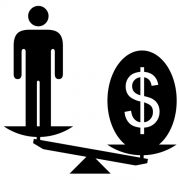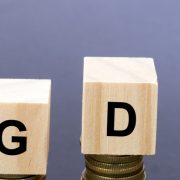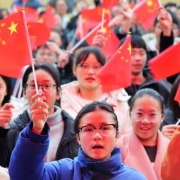Makes sense. If heavy- handed government direction of the economy were key to economic growth, China’s economy under Mao would have been the envy of the world rather than a historic calamity. Not until the spread within China of capitalist institutions such as private property and competitive markets did that country’s economy boom.
And boom it did! The World Bank estimates that since 1978 the number of people in China who have been lifted out of poverty is 800 million.
Yet China’s government remains, at least in name, communist. And while far less brutal than during Mao’s reign, it continues to be authoritarian.
This mix in modern China of an intrusive state with relatively free and competitive markets sows confusion. Unaware of the facts conveyed by Coase and Wang, many people mistakenly suppose that China owes its economic success to politicians and mandarins concentrated in Beijing rather than to entrepreneurs and merchants spread throughout the country.
One especially unfortunate consequence of this confusion is the belief that as President Xi Jinping ramps up Beijing’s control over the economy with industrial policies, China will become a dangerous economic rival of the United States.
Among those haunted by this baseless fear is Republican Sen. Marco Rubio of Florida, who calls for us Americans to meet Beijing’s industrial policies with industrial policies of our own. That Rubio and many other Republicans are stricken with this fear is remarkable. They apparently have gulped down whole the core belief of progressive Democrats that government bureaucrats can outperform free markets.
Rubio and others who tremble with this fear of China should, as my students say, chill. In their efforts to strengthen the Chinese economy through more government control, officials in Beijing are destined to fail.
History is filled with dire warnings of this or that powerful government using extensive controls to propel its economy to a new level of wow. What history is not filed with are actual examples of economies being so propelled. Quite the opposite.
Whenever genuine and sustained economic growth has occurred in reality, that growth was rooted in free, competitive markets combined with respect for private property and a toleration for innovation and change.
Government economic planning undermines these vital institutions and attitudes. Industries that receive subsidies and protection are those that are politically prominent or fashionable. They’re seldom the industries that have a promising future absent the favors bestowed on them by the state.
Making matters worse is the fact that these favors weaken rather than fortify these industries. Born from privileges and protected from competition, firms in these industries have little incentive to become efficient at any task other than begging the government for additional privileges and protection.Such firms do not become awesome global competitors.
And on top of these ills is this problem: All resources diverted to favored industries are diverted away from other industries, including those that would otherwise have grown into dynamic and successful participants in the world economy.
America’s best response to Chinese industrial policy is to move in the opposite direction by freeing our markets even further.
Donald J. Boudreaux is a professor of economics and Getchell Chair at George Mason University in Fairfax, Va.













